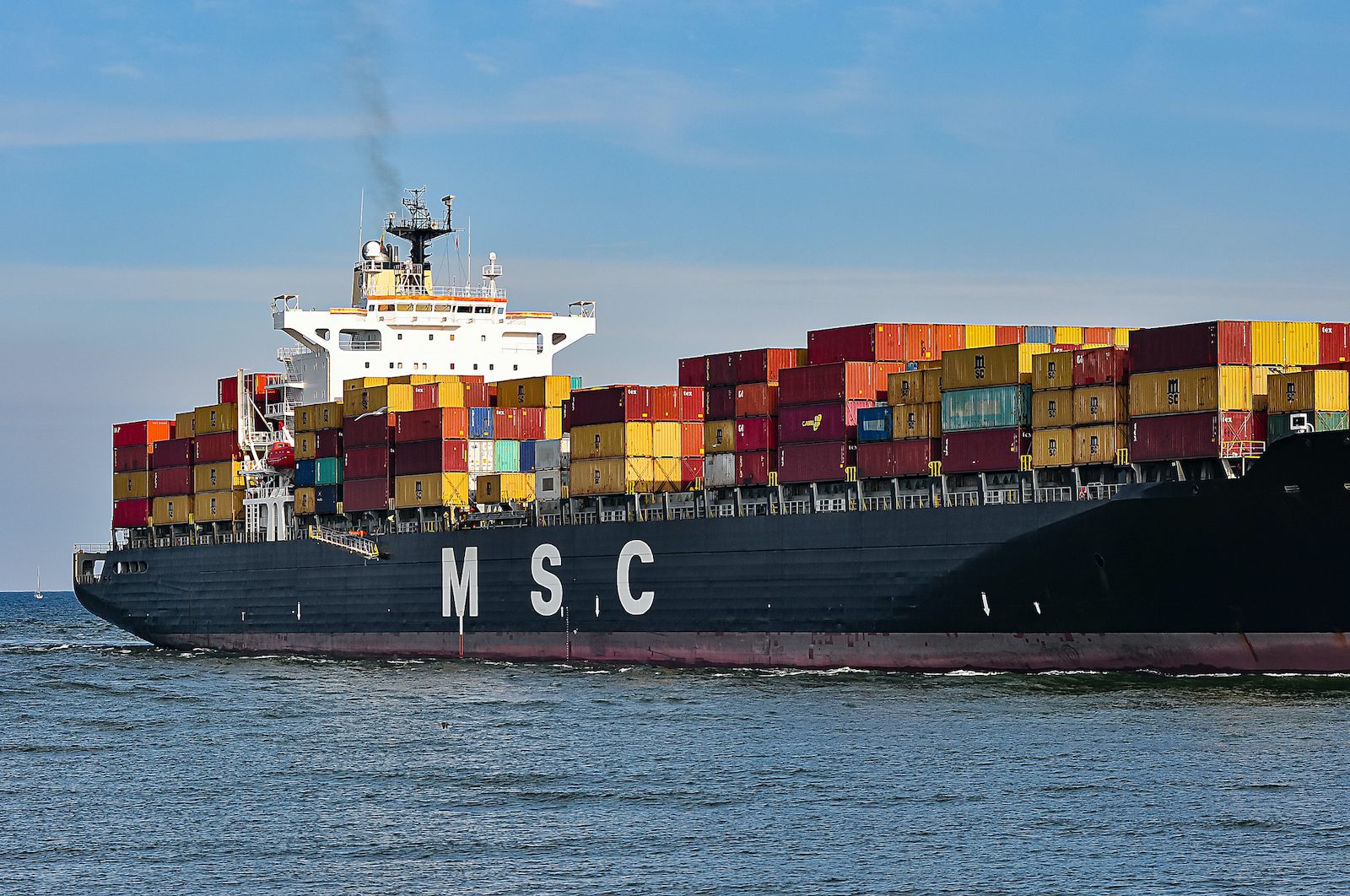As MSC Mediterranean Shipping Company’s fleet capacity swells past the 5 million TEU mark for the first time in history, the world’s largest container shipping company is revealing its intention to explore the use of ammonia fuel for its newbuild containerships.
The company has entered into a Memorandum of Understanding (MOU) with classification society Lloyd’s Register (LR), Shanghai Merchant Ship Design & Research Institute (SDARI), and MAN Energy Solutions (MAN-ES) to design an ammonia dual-fuel system for an MSC containership.
The MOU outlines the development of a technical specification and design documents for an ammonia dual-fuel variant of SDARI’s twin island 8,200 TEU design. The vessel will be contracted to LR class by MSC, paving the way for the company to consider ammonia as a zero-carbon fuel for the main propulsion of future newbuildings.
Under the collaboration, SDARI will be responsible for preparing the specification and design documentation for the ammonia dual-fuel variant, while LR will ensure that the design adheres to safety standards and regulations concerning the usage of ammonia as a marine fuel. MAN-ES will provide data for the engine design, as well as the ammonia fuel supply and emission abatement systems.
Ammonia is increasingly recognized as a promising alternative fuel in the maritime industry’s transition towards sustainable operations. When burned, ammonia emits no CO2, and its stability and reasonable energy-to-volume ratio make it suitable for long-distance transportation.
Nick Brown, CEO of Lloyd’s Register, expressed his enthusiasm for the project, stating that the collaboration is a crucial step in the industry’s energy transition and efforts to meet emission reduction targets set by the International Maritime Organization (IMO).
“The application of ammonia as a marine fuel for the container ship sector will be crucial for our industry to achieve the emission reduction targets set by the IMO and this cross-supply chain collaboration marks a vital step in the maritime industry’s energy transition,” said Brown.
Giuseppe Gargiulo, Head of Newbuilding at MSC, emphasized the importance of proactive collaboration between ship operators, designers, class societies, and engine manufacturers. MSC aims to evaluate the safety and operational impact of adopting zero-carbon fuels like ammonia.
“Under this MOU, we will produce the technical solution for an ammonia dual fuel variant of our 8,200 TEU containership design for MSC, a world-leading shipping company. Project like this are vital for helping us evaluate the risks and opportunities of using ammonia for propulsion and for sharing these learnings across the maritime supply chain,” added Wang Gangyi, CTO of SDARI.
Bjarne Foldager, Head of 2-stroke at MAN Energy Solutions, stressed the importance of exploring various fuel solutions to meet industry decarbonization objectives. “Being part of this MoU with MSC, SDARI and LR aligns with our strategic purpose, to provide decarbonization solutions for our trusted partners and it solidifies the industry commitment to reduce emissions,” he said.

